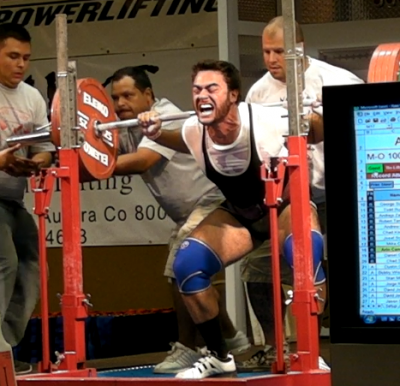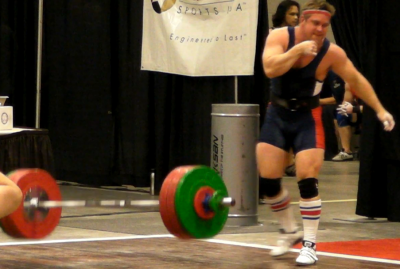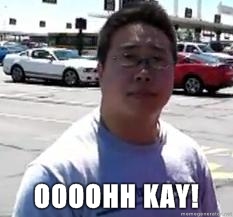Something is bound to go wrong. You’re going to miss a rep because you let the bar drift forward as you pulled it off the floor. You might (for whatever reason) close your eyes (followed by a forward somersault) and miss a heavy squat. At some point you won’t finish your pull and miss a clean or snatch. And you will sure as hell miss a heavy press forward. Whatever it might be, something is going to go wrong; you aren’t perfect all the time.
Some people can’t come to terms with this reality. They’ll get frustrated when learning a new movement and try to quit. Some pout and moan when they miss a lift and others don’t understand why they sucked on a given day. Others will look in the mirror and say, “My traps aren’t big enough.”
Irregardlessly, you’ll face these events and it’s up to you to decide whether or not you’re going to act like a sally when they do. When things go wrong, you (and your coach, if applicable) need to figure out what went wrong so that it doesn’t happen again. If you can manage to learn from your mistakes, then you’ll inevitably improve.
Mistakes can be mechanical in nature. Letting your knees drift in as you hit the bottom of your squat will cause them to also shift forward at the bottom which also brings your pelvis forward. Heavy deadlifts have a tendency to drift forward if you don’t pull it back, and this makes them exponentially harder. Hitting low on a snatch will help you miss it forward. Catching a clean in the same way will make the front squat much harder. Basically if you do something that moves the bar forward or backward of the middle of your foot, the lift is going to be extremely difficult, and there are lots of reasons that can make this happen on every barbell lift.
Problems can also occur from a macro standpoint: programming and recovery. Recovery limitations are either your fault or out of your control. It’s your fault if you didn’t eat enough protein and calories, but having a three day shoot out as a SWAT team member with little sleep is a function of your job. In either case, care must be taken when training to account for these things.
Programming problems can arise when someone is not ready for their program, advancing beyond their program, has long-term recovery issues, experiences nagging or acute injuries, or has too much volume/intensity causing too much stress in the current program. This is where you have to be particularly observant to look for patterns in your training and this is the chief reason why keeping a training log is important and necessary. As you advance and get stronger the closer you will have to pay attention to this. If you’re deadlifting too frequently, you’ll get run down and it will affect your squats and pulls. If you’re doing too much volume early in the week, then your intensity day will not thrive because you won’t fully recover. If you’re hamstrings aren’t used to handling heavy loads when they are tired, then deadlifting in a long meet is going to be arduous. When you cause local stress on structures (particularly muscles, tendons, and ligaments) and you have chronically high systemic stress, the structures won’t heal efficiently and are more prone to injury (which is why people get hurt from frequent CrossFit training). It’s all cumulative.
Younger lifters will some times feel helpless because of failure. Older lifters understand failure and most will learn from it. I know some people that have gotten strong because of their persistence over years and years of training, and it wouldn’t be possible without learning from their failure.
Looking for patterns is a concept that Pete Blaber repeats in his interesting book, The Mission, The Men, and Me. If you’re observant over time you’ll be able to absorb enough data to recognize patterns that can help you figure out what went wrong. When you figure out what went wrong, you’ll be able to fix it and improve. It’s okay to fuck up. Just don’t keep doing it.



